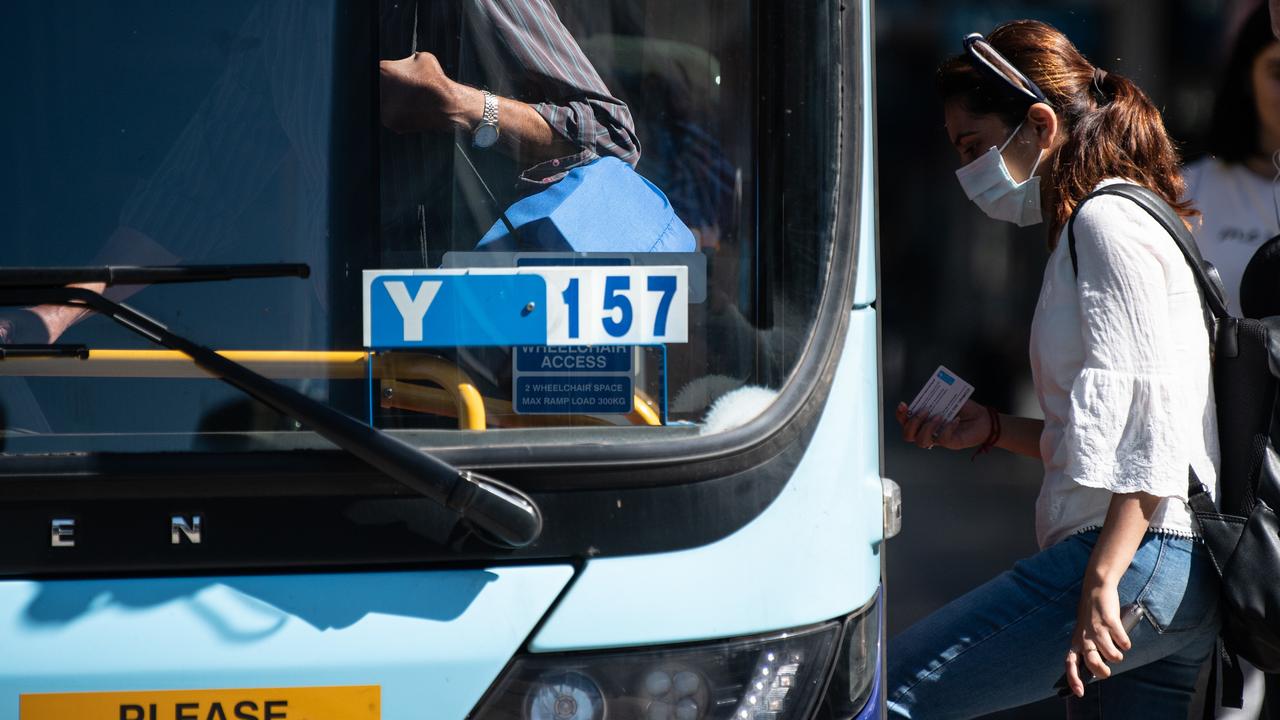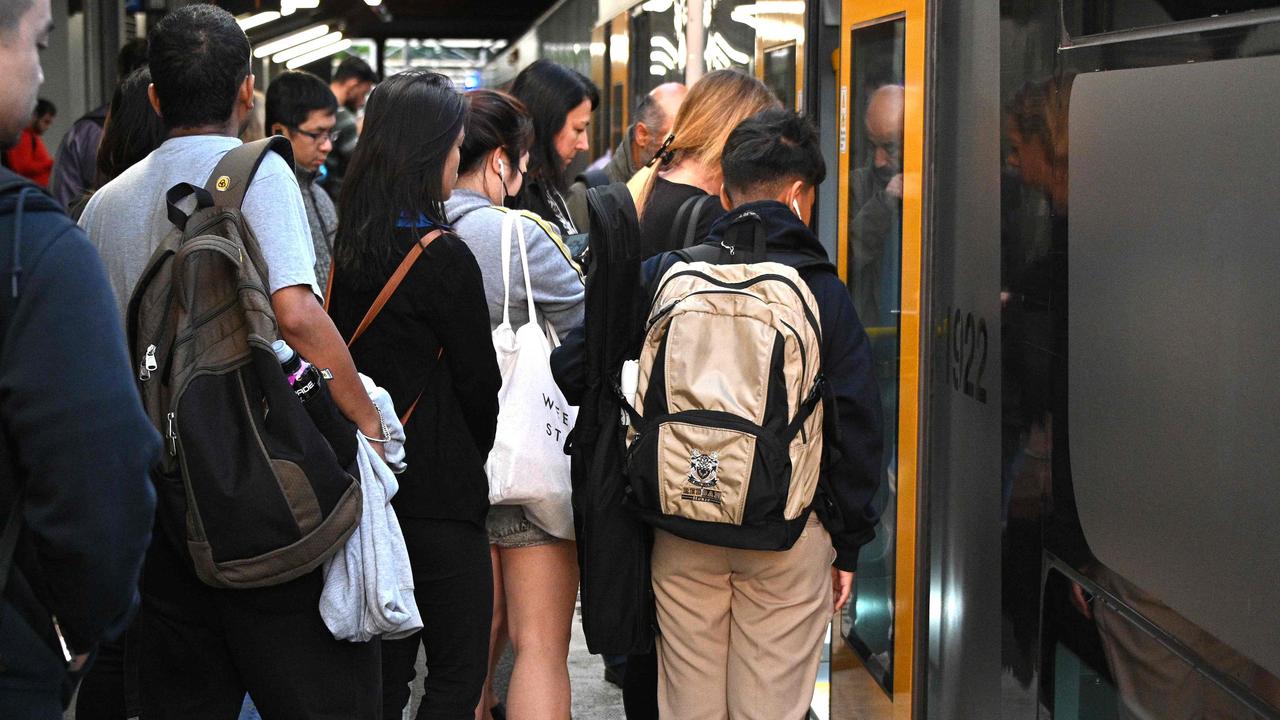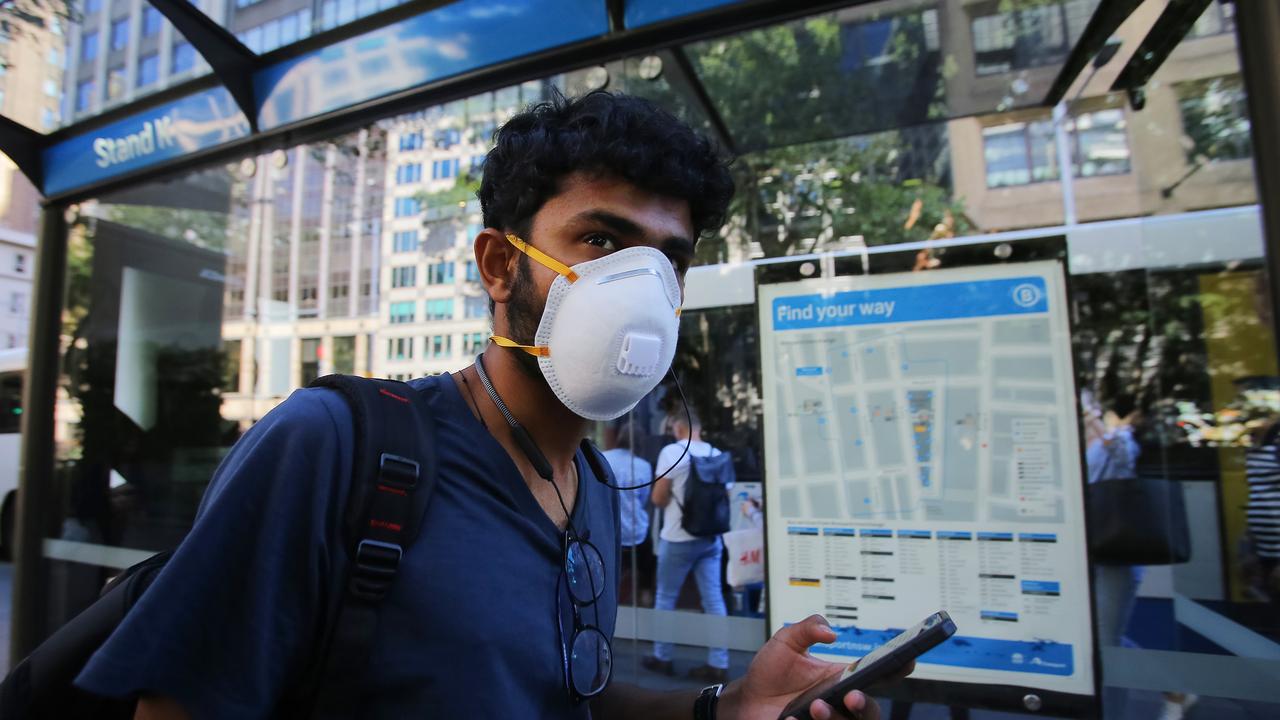Coronavirus Australia: How can you reduce infection risk while on public transport?
The government has banned indoor gatherings of more than 100 people unless they’re absolutely essential. Should you worry about catching trains and buses?
Prime Minister Scott Morrison announced an unprecedented ban on all non-essential indoor gatherings of more than 100 people in a bid to slow the spread of coronavirus.
It followed an earlier measure restricting outdoor gatherings of more than 500 people in all instances that are deemed non-essential.
Stricter measures are likely to be announced soon, as the cases of COVID-19 in Australia continue to surge.
But what about public transport?
Dr Yale Zhuxiao Wong is a researcher at the University of Sydney’s Institute of Transport and Logistics Studies and said public transport is vulnerable to disease outbreaks.
“The confined spaces and limited ventilation of public transport vehicles could lead to infections among passengers, while frontline transport workers are particularly exposed,” Dr Wong said.
“An outbreak among these workers could bring entire fleets to a standstill. It would also disrupt the travel of health workers who need to be mobilised during the pandemic.”
RELATED: Follow the latest coronavirus updates
RELATED: What social gatherings are now banned?


Shutting down entire transportation networks would bring capital cities to a halt and disrupt the free movement of key workers, particularly in the health sector.
Urging people to stop taking buses, trains and trams isn’t practical either – at this stage.
“Public transport is the lifeblood of our cities, so it’s desirable to keep services running as long as possible,” Dr Wong said.
“One of the best ways to reduce infection risk is to step up cleaning efforts. Public transport operators are already doing this, but not to the extent required during the course of the day.”
Private bus operators are contracted by governments to run services in many Australian capital cities. Dr Wong said they’re “simply not equipped” to tackle the massive task of disinfecting vehicles a few times a day.
Buses typically undergo a full clean of their interiors overnight, he said. Cleaning them during driver shifts isn’t currently practical.
Train operators across the country have significantly increased their cleaning efforts both inside carriages and around stations.
“Trains, trams and buses will have increased sanitation on all touch points and be disinfected more often,” Public Transport Victoria (PTV) said.
Sydney Trains has also increased its sanitation efforts in recent weeks.
NATIONAL TALLY: Coronavirus cases in Australia

But Dr Wong said cleaning needed to occur more frequently to protect the public.
“To increase the frequency of cleaning, perhaps a government authority could organise ‘rapid response’ cleaners stationed at terminals,” Dr Wong said.
“While this might cause delays between trips, it would reduce the pressure on individual operators. Having a cleaning crew work across multiple operators would also be more efficient.”
PTV is advising passengers in the state to consider staggering their movements by changing the time they use trains, buses or trams.
“Travelling outside of peak times will help reduce the number of people using the network and support social distancing measures,” it said.
Anyone who is sick should not use public transport, it said.
Other passengers can reduce any risk by practising good hygiene when travelling on public transport.
“Wash your hands often and before travelling with soap and running water, for at least 20 seconds. Dry with paper towel or a hand dryer,” PTV said.
“Try not to touch your eyes, nose or mouth. Cover your nose and mouth with a tissue when you cough or sneeze. If you don’t have a tissue, cough or sneeze into your upper sleeve or elbow.
“Don’t wear a face mask if you are well. Use an alcohol-based hand sanitiser with over 60 per cent alcohol.”
People are also being encouraged to keep a social distance of 1.5m where possible from other passengers.
Given the critical role of public transport, Dr Wong said workers should be wearing government-issued face masks.
“These proactive measures based on disease prevention should always be preferred to any reactive approach after a major outbreak hits our transport system,” he said.
The Health Department has advised that drivers of public transport, be it taxis, trains, buses and trams or ride-share vehicles, should immediately stop working if they are unwell.
Those who have recently returned from a country overseas deemed to have a moderator or high risk of coronavirus are subject to specific requirements when it comes to work, it said.




